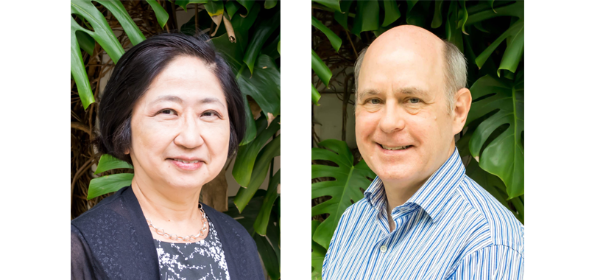
Dear Colleagues and Friends of the Center,
This will be my final letter, since I am stepping down from the directorship of the Center for the Humanities that I have held since its establishment in 2007. Throughout the two terms and ten years, I have found immensely rewarding my interactions with my faculty colleagues, the graduate students, and members of the community of South Florida, as well as the challenges of presenting a varied set of programming to engage these various constituencies.
The new Director, whose appointment was unanimously recommended by the Center’s faculty board, is Hugh Thomas, Professor of History and Cooper Fellow, who has achieved an international reputation as a distinguished scholar of medieval England. Hugh could not be a better choice, for he has been making valuable contributions to the Center since its inception: he served on the planning committee for the Center that drew up a proposal for its establishment; he has been a member of the Center’s faculty board; and he is one of the few faculty members who have been awarded a fellowship at the Center twice. I am confident that the Center will continue to thrive under his directorship; he has already identified new initiatives focusing on undergraduates, and I very much look forward to seeing the fruition of these innovative projects.
This past fall we welcomed Henry King Stanford Distinguished Professors Annette Gordon-Reed, who gave a timely and compelling talk on the past and present of race relations in the US, and Richard Martin, who shared with us his investigations into the relationship between the Homeric epics and local religions in ancient Greece. The Department of Classics organized a conference, “Homer and his Legacy,” to honor Martin’s scholarship on Homer.
Although Hurricane Irma compelled us to postpone the lecture by Henry King Stanford Distinguished Professor Elizabeth Boone, she was able to visit us in January to present a fascinating talk and informative seminar on the painted books and pictographic writing system of the Aztecs. The spring also brought Vincent Brown, whose talk on the consequences of the transatlantic slave trade in militant resistance, accompanied the Lowe exhibition, “Antillean Visions: Maps and Map-making in the Caribbean”; and Dylan Penningroth, whose keynote for the History Department conference, “The Many 14th Amendments,” addressed the relationship between African American religion and legal culture. In April, the Center presented the fourth Edith Bleich lecture by Ingrid Rowland on two Renaissance magnates—one Italian, one German—the first public event to be held in the newly inaugurated Kislak Center.
In addition to these lectures which attracted large audiences comprised of the UM community— faculty, staff, students—as well as the general public, we continued to present programming aimed at graduate students navigating an increasingly difficult academic job market: for our established series of workshops, Expanding Career Opportunities for PhDs, we brought back to campus our own PhD graduates—in English, History, and Philosophy—who currently teach at community colleges; we also invited a “humanist entrepreneur,” who has built a successful editorial and translation service by deploying the training and expertise she gained in working toward her PhD. In addition, we presented two publishing seminars, one on how to navigate the various stages of book development, and another on writing an effective book proposal, which also addressed the important question of how to conceptualize a compelling book project.
We thank President Julio Frenk and Provost Jeffrey Duerk, who welcomed the participants for “The Many 14th Amendments” conference. Thanks are also due to the Center’s faculty board and our Dean of the College of Arts and Sciences, Leonidas Bachas, and Senior Associate Dean for Research, Angel Kaifer, for their ongoing support of our programming. I also acknowledge the hard work of our staff during this time of transition: Zureyka Carsi, Amanda Vargas, Ony Dunnham, Carol Valle; graduate program coordinators Alisa Bé and Kerri-Leanne Taylor; and student assistants Hunter Carpenter, Jack Morton, Demaree Rios, and Peter Winans.
Mihoko Suzuki
Director, Center for the Humanities
Professor of English




